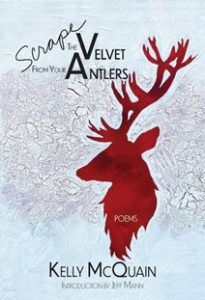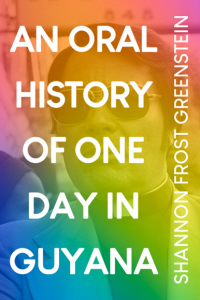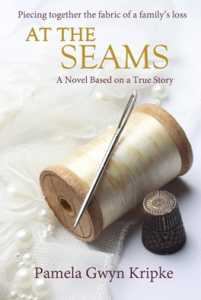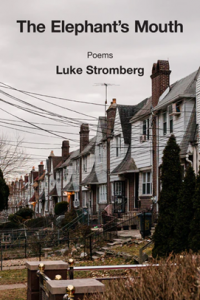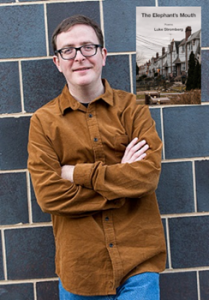The Money Mix Up
The words on the page in front of me were exhilarating, line after line I read about the forecast. Although I’m not super interested in the weather, I was grateful to be working at such a popular news station, like LYZ News.
I only graduated college a year ago, and my mom had connections with the Tanning family who could get me a job. John Tanning was my mother’s boss; it took years for them to form a friendly work relationship and even that was a struggle to keep. My boss was John’s son, Adam Tanning, and it seems like arrogance and ignorance ran rampant in the family. The Tanning’s don’t care about anyone but themselves and their money.
I refocused on the script in front of me, turning off my thoughts. You only have another 30 minutes, Izzy, you need to get these down.
“The sun is shining today in San Antonio, with the temperatures up in the high 80s. The perspiration is low today, but the humidity is sky rocketing. The temperature may say 88 degrees, but it feels like 97! Jersey, if you go outside today make sure you stay hydrated and cool. If you are going out of state, I have the forecast for you next in after this short commercial break.”
When I get to the second part of my reading, I went to take a sip of my peppermint tea. I always drank tea before I have a show, it keeps my voice calm and steady. As I peer up to, I take a sip, I noticed that I have captured all the eyes of the men surrounding me. There are no other women reporters in the office, so I did not find this totally unusual.
I looked down with furrowed brows, attempting to distract myself from the attention and continued to do my work.
“Welcome back, this weather report was brought to you by Chelton Farm, the fresh farm, the fun farm. On a hot day like this the Chelton Farm is great for family activities providing…”
As I continued to read my script, I heard the glass door of Mr. Tanning’s office creak open.
“Isabella, my office,” Adam said, staring directly at me with a mean nasty look on. “Now.” I wonder what he wants now, to yell at me about my clothing, to tell me my segments cut down again. It’s always something with him. It’s always something for me!
I pushed out my chair, and began walking towards the glass box in the middle of the office, which is around 15 feet from my desk. Our office is big, but the reporters only had a small section inside the building. There are nearly 20 desks around Adam’s room that are about 4 feet apart.
As my tan wedges slammed against the marble floors, I reached the door that Adam was holding open to signal my entry.
Adam took a breath before accumulating a harsh, “Take a seat, Miss Marshall.”
I sat down on the tan chair in front of his wooden desk. Usually, I would be nervous if my boss called me in that tone, but Mr. Tanning is different. He always speaks like he’s mad at the world.
Adam began his lecture, “So, there is a very important matter, we need to discuss. Last Friday, the financial department announced that someone has been illegally laundering money. There has been $1,300 in total taken.”
I furrowed my eyebrows in confusion. Before I could stop myself, my thoughts were being spoken out loud. “What does this have to do with me?”
Oh my, I just said that out loud – to my boss. I looked at Adam in fear of his reaction. He stared at me so intensely, almost like he’s was reading my mind. To my surprise, Adam laughed. He did not scream and scold me, but simply laughed out of pure humor.
“Miss Marshall, you know exactly what this has to do with you,” he says, sliding a piece of paper across his desk. As I picked up the sheet, I realized it was a note – written about me:
Dear Mr. Tanning,
It is with deep regret that I must inform you of an act I witnessed in the office, regarding Izzy Marshall. On Thursday night after the new station was closed, Izzy claimed she needed to stay after finishing her script. It was then that I saw her fraudulently withdrawing money from the LYZ Networking Bank Account.
Before I could finish reading, Adam abruptly started to ramble.
“Izzy stop reading that like you don’t know what you did. Stop acting all innocent. It is in writing that someone saw you the day before the financial department reached out.” Taking a short breath Adam continued. “This would be an awful coincidence, and it is not. This is the truth Izzy. Admit it. Admit that you are a thief, just like these other women.”
That sentence made me lose it, “Are you serious? I wasn’t even here on Thursday night but, I bet you didn’t check that. You assume it’s me because I’m a woman. Because you have been looking to fire me, the only woman news reporter here.”
Adam sighed, “If it pleases you, I will open an investigation”
Yes, I thought, I did it, I finally got through to the evil Mr. Tanning. He is starting to believe in me. “Thank you, that’s all I was –” Before I could finish, I was cut off with the harshest voice to ever register.
“Until further notice, you’re terminated.”
I looked at Adam; my eyes wider, my ears redder, and my heart beating faster.
“I’m what? Mr. Tanning, this is an accusation,” I start to stumble on my word as my chest gets tight. “You-you can’t fire someone over an exultation – accusation.”
After correcting my words, I felt sick. The sickest I had felt in years, the type of sickness that is contagious by just looking at someone. But my ill feeling did not transfer to Mr. Tanning… instead, he looked me in the eyes with no emotion, no remorse. Taking a deep breath, I attempted to regroup myself.
“Izzy, you are not fired, you are terminated, until your name is cleared.”
As our conversation continued Adam explained the investigation process, how long it would take, and the termination benefits – that are basically non-existent. I tried to listen, but I could not erase the sound of “Until further notice, your terminated.” Adam’s deep angry voice replayed in my head constantly, and I didn’t think it would ever stop.
After leaving Mr. Tanning’s office, I went to my desk. I did not even endeavor to look up, I did not want to see all the judgmental eyes. Grabbing my notebooks and everyday essentials, I left the office. Walking down the stairs, into the elevator, past the security, and not forgetting to tell my favorite receptionist in the Writing Department; Marissa, that I will not be here for a couple weeks. With every step I took, I found myself reciting the miserable mumbles of Mr. Tanning.
When I entered my taxicab back to my house, I began to let it out. Not caring what the middle-aged Russian man listening to Mariah Carey thought of me. I sobbed louder with every thought. I don’t have a job, a source of income, or any more money coming in to provide my mom or sister with the life they deserved.
I wept until my throat was sore and my eyes were stained with red splotches, to the point where the taxi driver felt compelled to ask me what’s wrong…which just made me weep some more.
When we got to my apartment building, I tipped my driver, Dmitri, extra for dealing with me and hesitantly stepped out of the yellow car. As my feet glided me to the doors, I felt shameful, like I was embarrassing myself having to walk through the same people I see every day, but today it was different. This day… I am jobless and crying like a little child.
Approaching apartment 7D, I unlocked the white door, taking a step inside and feeling the fluffy purple rug elevate my feet.
I just wanted to rot in bed for the rest of the day. I continued my journey into the living room, and I’m greeted with the bright white walls that capture my focus every time. Looking directly ahead I saw our picture; me, my mom, and Aubrey. We took real beach photos last year after my mom was diagnosed, just for the keepsakes. I rethink my previous thought; I truly just wanted to rot in bed with my mom.
I heard a noise come from my mom’s bedroom; it sounds like she’s trying to come see who’s at the door.
“M-mom,” I tried to sound composed but I sniffled between every word. “It’s – it’s just me.” I wandered to her room, hearing the brown door creak open as I was approaching. My mom’s face drops, and worry consumes the pre-existing happiness she had to see me.
“Oh, Isabella, my precious darling,” she said as she opened her arms for a hug. I accepted her action of affection, embracing my mother and feeling her golden red hair fall upon me. I stood in her arms, my head hidden in her shoulder, hugging her tight.
“Izzy, what’s wrong?”
After gaining composure, with the help of my mother’s soothing voice we sat on my red love seat. I began to explain what happened in the morning, to Adam yelling at me, to my goodbye to Marissa. With every word that escaped my mouth I saw the frustration grow inside my empathic mother.
When I finally finished my story my mother said, “Izzy, you show them who I raised you to be. The strong, independent, Isabella that lived in Houston would never be fired for a lie.”
We stayed on the sofa until my worried had diminished and my voice was calm. My mom always knows how to say things best. Looking into her beautiful green eyes, I felt inspired by her strength. From raising me and my sister alone while healing from men, to getting diagnosed with coronary heart disease 5 months ago – she had always had the strongest will to love.
…
That night I thought a lot about how I could get my job back. I did not want to get back at Mr. Tanning, I just wanted to prove my innocence and continue my journey in journalism. I had ideas of stomping back into that office and demanding respect but… that just can’t happen. I could never demand respect from Mr. Tanning, he doesn’t even respect his friendly co-workers.
As Christina Aguilera’s “Voice Within” overtook my ears, I thought about my “I” necklace and how my mom worked so hard to be able to afford sterling silver. How she stayed up till 3 am working some nights, how she never settled for less than better of amazing. I need to do this for my mother, now more than ever.
The obnoxious rattling of my phone startled me out of my thoughts. When I glanced at the name, I felt my misery dwindle, it was Steve.
Picking up the phone I announced, “Hey, Stevie.”
Steve responded with a voice of sympathy, “Hey Izzy, I heard what happened, it is so terrible. I am so sorry.”
I hate it when people feel bad for me. It makes me feel like an anguished woman.
“It’s okay Steve. I will not let this happen. I am innocent and I will fight for my fair investigation.”
“Oh…” Steve sounded taken aback by my determination, “good for you Izzy. Hey, listen do you think I could call you back, there’s a crazy fight outside?”
“Yea, yea. That’s fine, just call me back. You’re the only person that will understand me.”
“Yea, of course. Bye Izzy.” Before I had time to respond I was greeted with the awful beep sound, signaling Steve hung up.
Good night to you too I thought, as I got comfortable under my purple silk sheets. I’m so exhausted, today was exhausting.
My mind shortly drifted off to a peaceful sleep, dreaming of Mr. Tanning and his face when I proved I am trustworthy.
…
The days that followed, I tried to sketch a plan; with the assistance of my mom. Every day it became more difficult to keep hope, with every plan reaching a dead end and all reports from Steve being the same. My mom even reached out to Adam’s father, her former boss John, but he was clueless on the matter.
On Thursday, I went on a jog trying to clear my mind and motivate myself. While running at the local dog park I saw Marissa. She was with her precious white poodle, Lottie – she had mentioned the gorgeous dog plenty of times before.
I approached the nicely dressed woman, this being our first out of work encounter made me slightly hesitant. My nerves settled as Marissa saw me and gleamed brightly, striding towards me with her arms open for an embrace.
“Izzy, oh my god!”, Marissa exclaimed, “how have you been? I’ve missed you”.
Surprisingly, when the receptionist asked me about my well-being, I did not feel the same agonizing annoyance, but I felt quite support; like Marissa was genuinely is happy to see me.
“I’ve been doing okay”, I sigh, “it’s been getting harder knowing that Adam isn’t even following through on his investigation. I worked so hard for this just to get blackballed by the news industry before I could make a name for myself.”
“Oh, you poor angel, come here”, embracing me again I felt vulnerable and for the first time in a while comfortable expressing myself.
“I’ve been meaning to call you about the investigation. I overheard something I think you should investigate.”
I shifted my position just a little closer to Marissa, as if it would help me hear her better.
“When I went to drop off Mr. Derwin comments to Mr. Tanning, I noticed him, and Steve were talking in his office. They didn’t see me walking up, so I was able to hear them talking about meeting at Adam’s house tonight for a money exchange. When I walked in the room, they stopped talking and looked very nervous.”
By the time Marissa had finished telling me what she heard, I was shaking. There are so many emotions that I am feeling betrayed, sad, confused, and most importantly furious. Why would Steve do this to me? Why would Adam allow him to do this to me in a professional environment?
“Thank you for letting me know Marissa”, I looked at her in the eyes, “I appreciate you still believing in me. Now, I must get back to my jog if I want to make it to Adam’s on time tonight”, I laughed.
…
Stepping out of my apartment I looked at my bag, making sure everything was there. A camera, yes; my glasses, yes; and pepper spray just in case, yes. Making my way to my black Civic, the anxiety increases. I hope Steve isn’t here. I hope Marissa was wrong.
I placed my items in the passenger seat before plopping down in the driver seat. I turned on the radio and “The Sweet Escape” by Gwen Stefani blasted through my sound system. I let the words guide my way as I navigated to my bosses’ house.
I knew where Adam’s house was from the times me and my mom visited his dad. He bought the property next door and built a house just like his parents. John would talk about it all the time.
As I arrived at Adam’s house, it had such resemblance to his family’s home – except his porch and freeze board were black and his family’s was bright yellow. He had the same white cladding, the replicated wave designed staircase out-front, and the perfect number of rocks and seashells covering the lawn.
I parked across the street from his house, almost directly but 2-3 cars further on the street. I sat and waited. Waited to see what I dreaded most; my best friend paying off my boss.
I sat in the car thinking about all the possible outcomes. Steve could no-show, I could’ve missed it, Steve does show up and I see his pay off Adam. I prepared myself for everything I needed to.
After almost 45 minutes of sitting outside of the house, a white Jeep pulled up and parked 6 spots behind me. I ducked under the dashboard in hopes of going unnoticed, after waiting for a couple seconds I gradually revealed my face. Peeking with my eyes I see the back of a muscular body swiftly walking towards the big wooden painted door.
I knew exactly who was walking into that house. I wanted to get out and shout at him, ask him why he’s here. I needed to know; I needed to hear it from Steve himself.
Despite my sensitive stomach I forced myself to stay camped out long enough to get video evidence of the money exchange. From what I looked like Steve was paying Adam hundreds of dollars to keep quiet, to keep me from getting my job back.
I drove directly to Steve’s house afterwards’ he lives with his girlfriend, Eliza, only 10 blocks away. I knocked on the door and was greeted by Steve’s lovely girlfriend who has always been so welcoming and happy to see me but… today something was off. Eliza almost looked shocked when I arrived at their steps, but she still welcomed me asking if I wanted any tea.
“No, I’m fine thank you”, I took a breath, “I’m just here to see Steve.”
“Oh…”, she hesitated, “Steve just went to run some errands he should be right back.”
I nodded my head, although I knew the truth about Steve’s true location. I wanted to wait for him and ask him politely why he was there. I certainly wouldn’t freak out on him, as I’m in HIS house.
I heard the door creak open, and Steve rounded the corner into the dining room where me and Eliza were talking.
His eyes went wide when he saw me, “Izzy, what are you doing here?” he said with a big fake grin on his face.
Without speaking I pulled my video camera out of my blue purse and opened the file of Steve’s video. I turned the camera to him so he would see my evidence. I watched his face as he realized what I was playing. His smile turned into an ‘O’ shape and lines arose on his forehead.
“Izzy, I can explain”, he quickly expressed, “I was meeting with Adam over a business investment.”
“I call bull, Marissa told me about your little conversation with Adam and how you both got all secretive when she came in.”
He stared at me, with a blank expression. A guilty blank expression, the kind with no thoughts behind it.
“Okay, Steve. Nice talk”, I paused expecting an answer but getting none. Is he serious? He’s not going to give me any explanation? Was this all just a set up?
……………..
The following morning, I went to the LYZ News Station with my camera. I wore a pair of velvet black pants and a gray sweater, to show that I am professional even if others are not. Walking through the glass doors, I went right to Marissa, embracing her tighter than ever before.
I continued to walk up the metal stairs, all the way until I reached the 6th floor. Walking out of the stairwell, I felt the familiar eyes latch onto my every move. I did not pay them any attention but rather strode more confidently to Adam’s office.
As I reached the glass door, I gazed up, seeing Adam already looking at me. Taking one last deep breath before opening the doors, I prepared myself. This is it. That is what you worked your whole life for. YOU got this.
Julia Labb is a Philadelphia resident and a senior at Franklin Towne High School. She enjoys binge watching television, reading, and going on walks. Julia plans to become a court reporter in Philadelphia after graduating in June.
